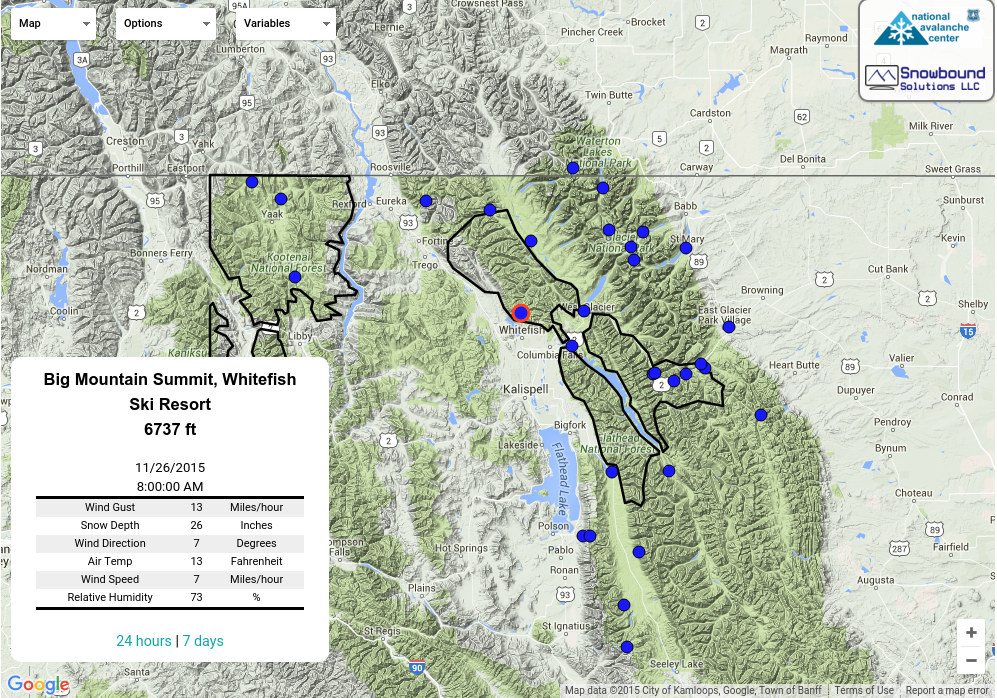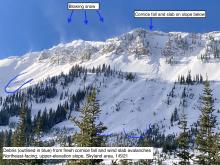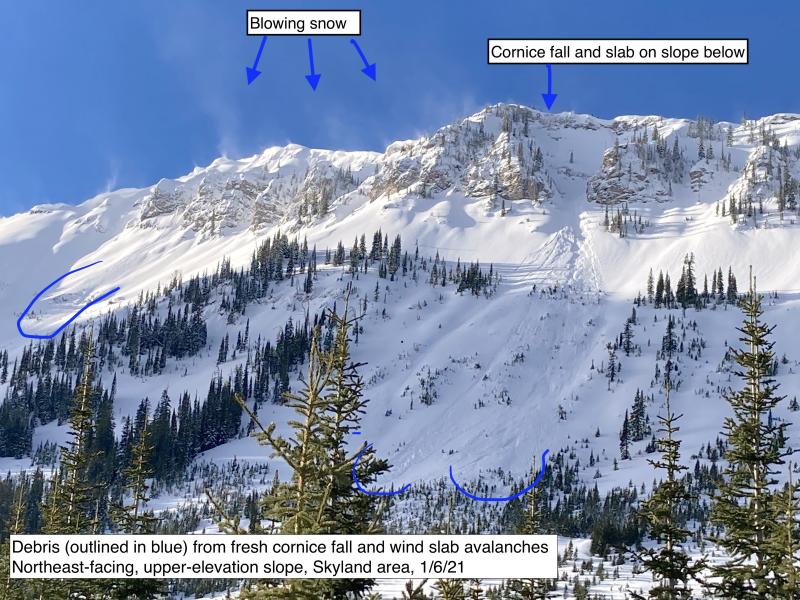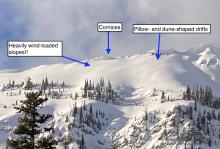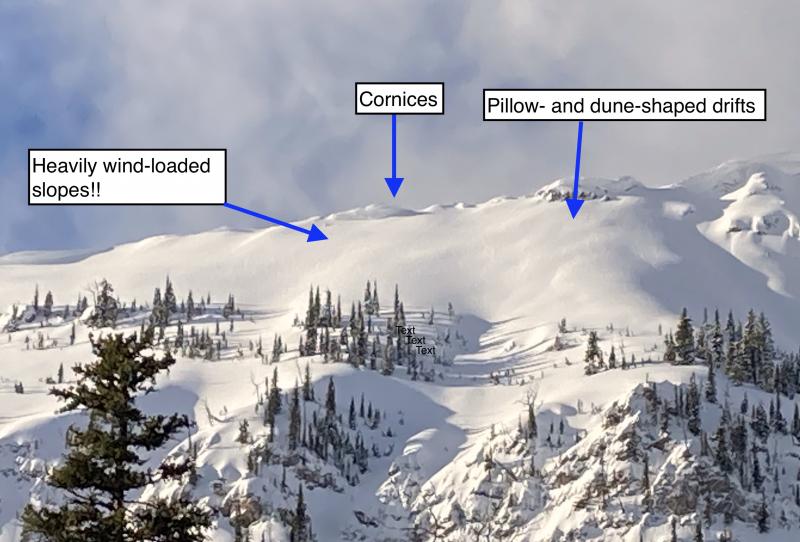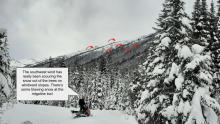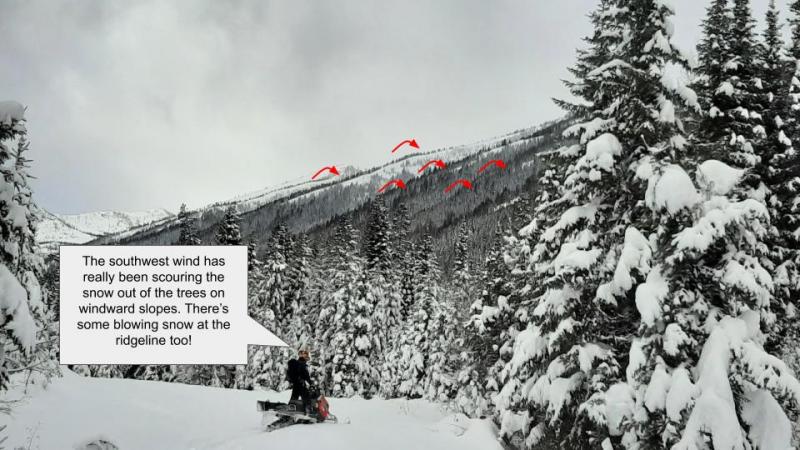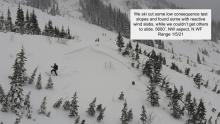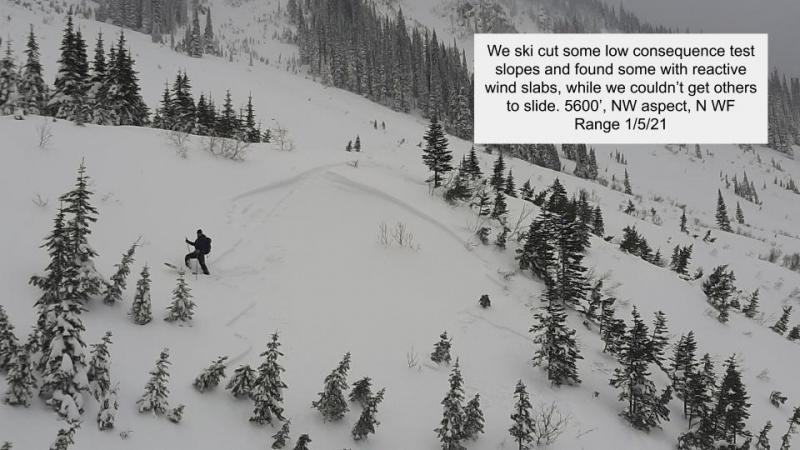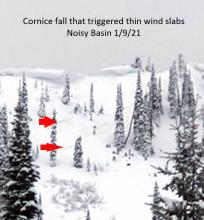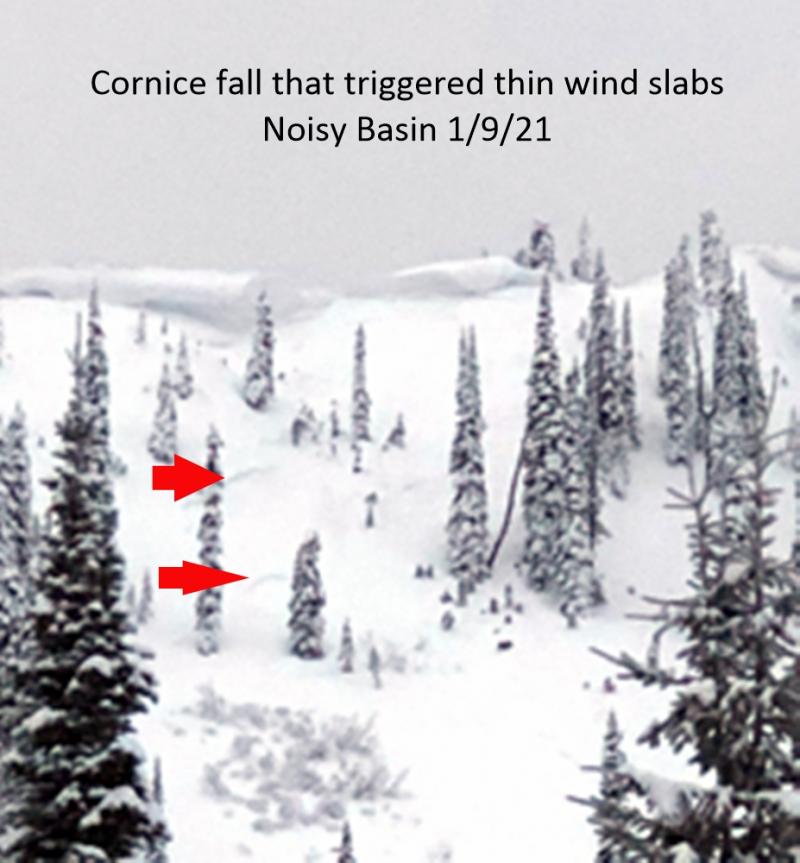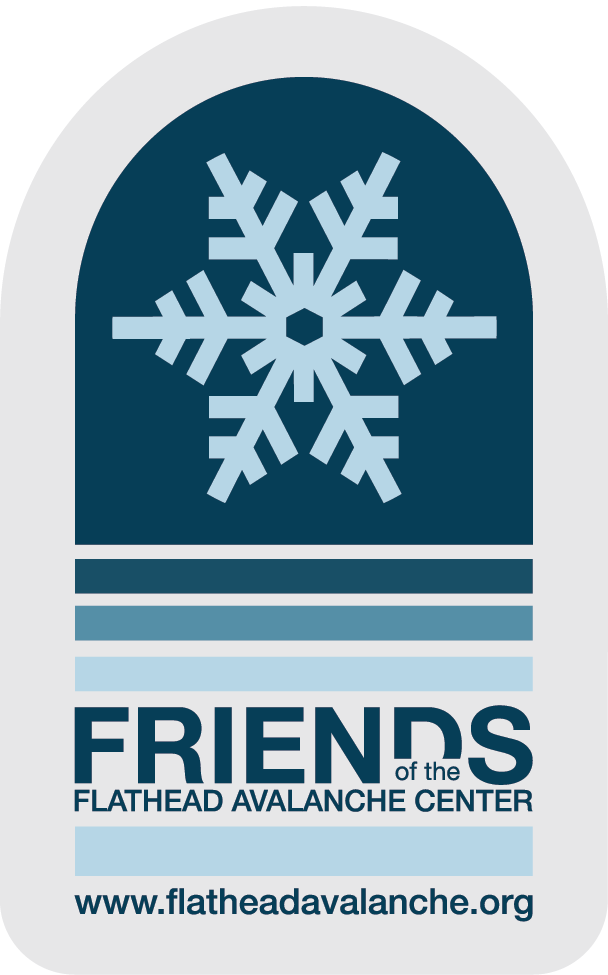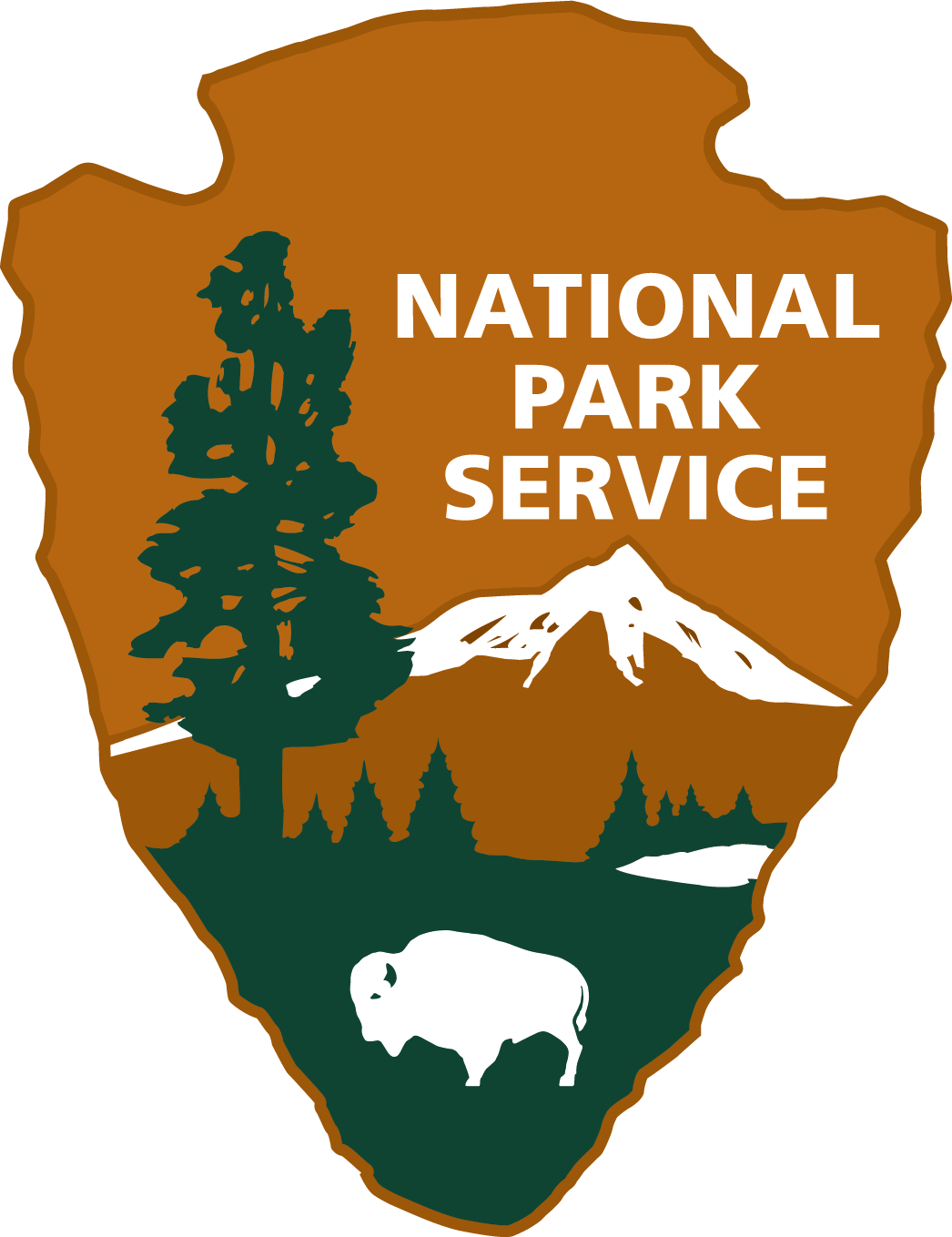| Thursday | Thursday Night | Friday | |
|---|---|---|---|
| Cloud Cover: | Partly Cloudy | Partly Cloudy | Mostly Clear |
| Temperatures: | 19 to 28 deg. F. | 7 to 11 deg. F. | 27 to 34 deg. F. |
| Wind Direction: | Northeast | East | West |
| Wind Speed: | 14G25 | 11 | 9 |
| Snowfall: | 0" in. | 0" in. | 0" in. |
| Snow Line: | 500' | 500' | 1000' |
Whitefish Range
Swan Range
How to read the forecast
The snowpack is generally stable with a few exceptions. Watch for isolated, small wind slabs on steep slopes. Recent northeast winds have scattered these drifts erratically across exposed terrain. Evaluate your line carefully, especially if there are cornices looming overhead.
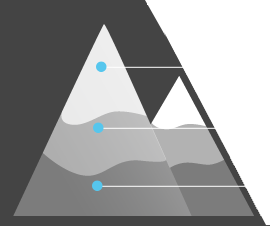
1. Low
?
Above 6500 ft.
1. Low
?
5000-6500 ft.
1. Low
?
3500-5000 ft.
- 1. Low
- 2. Moderate
- 3. Considerable
- 4. High
- 5. Extreme
-
Type ?
-
Aspect/Elevation ?
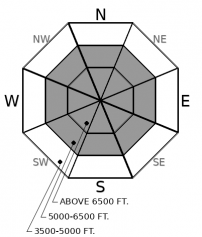
-
Likelihood ?CertainVery LikelyLikelyPossible
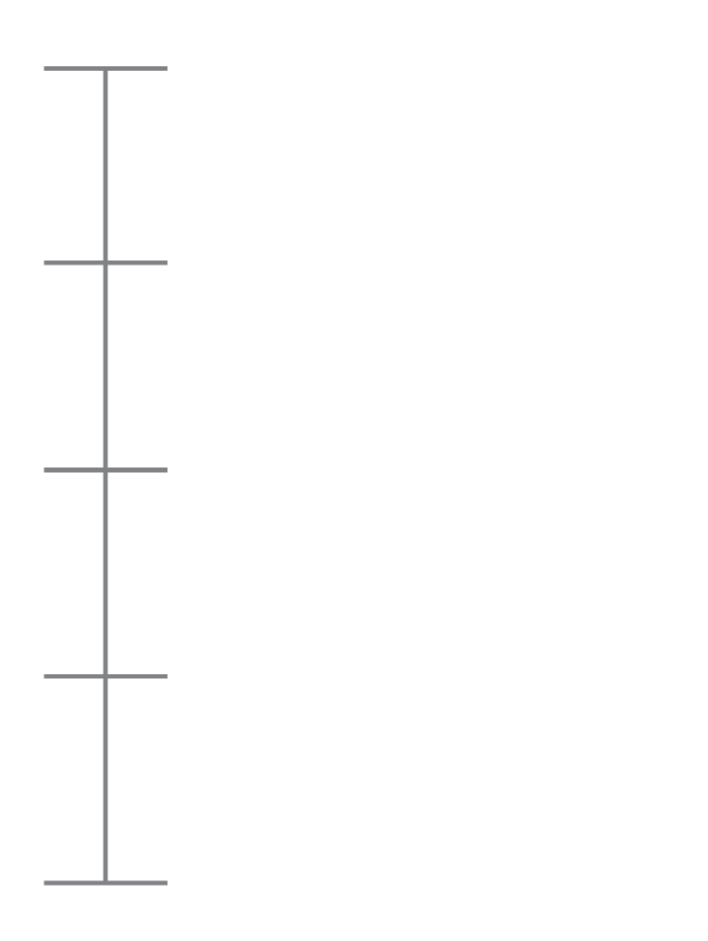 Unlikely
Unlikely -
Size ?HistoricVery LargeLargeSmall

Strong northeast winds last weekend scoured exposed areas and drifted wind slabs onto leeward slopes. Slab distribution varies from drainage to drainage and from slope to slope. They can be soft or hard and you can find them in unusual places. They are stubborn and it’s unlikely for you to trigger an avalanche today. But they can be large enough to have real consequences, especially in the Flathead Range and Glacier Park. As you step out into bigger terrain, evaluate your line for rounded drifts below cornices and on the sidewalls of chutes. They will have denser, rippled snow that sounds hollow. If they crack around you, steer clear to wind-sheltered terrain.
Spring is off to a chilly start as more cold air drops down from Canada today. Moderate and gusty winds from the northeast continue to scour exposed terrain. They don’t have much snow left to blow after the strong arctic intrusion last weekend. That wind event already transported the loose snow available on windward slopes. It built slabs on atypical aspects and in unusual locations. The pattern of wind loading varies from basin to basin. The last wind slab avalanche that we know about ran on Tuesday. It failed naturally as the sun warmed the surrounding snow.
Observers reported small sluffs and wind slab avalanches through Tuesday. Sunny aspects warmed earlier this week with relatively little wet avalanche activity.
The snowpack is generally stable. Exposed areas have hard wind board, sun crusts, or old, stubborn wind slabs. Hard surfaces will likely remain hard with cooler temps today. Sheltered terrain still holds soft snow that has been faceting under the clear skies and colder temperatures. It will sluff on very steep slopes. We have a few reports of surface hoar growing in areas that have seen the least wind. Cornices still loom large over many starting zones and deserve a wide berth.
Northerly aspects are just starting to see sustained sun this time of year. They should stay cold today, but with more sun and warmer temperatures we could start to see loose wet activity working it’s way around the compass.
Temperatures are still dropping this morning and winds have increased from the north as more cold air drops down from Canada, eh? Expect partly cloudy skies and slightly warming temperatures until Sunday. The next chance for precipitation is late Saturday.
This forecast applies only to backcountry areas outside established ski area boundaries. The forecast describes general avalanche conditions and local variations always occur. This forecast expires at midnight on the posted day unless otherwise noted. The information in this forecast is provided by the USDA Forest Service who is solely responsible for its content.

